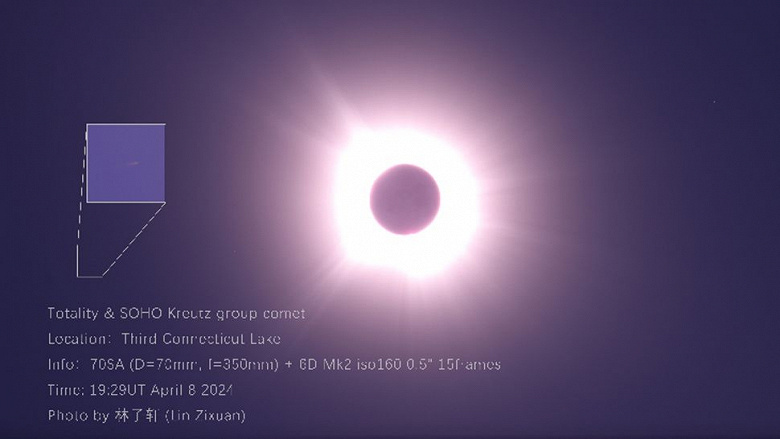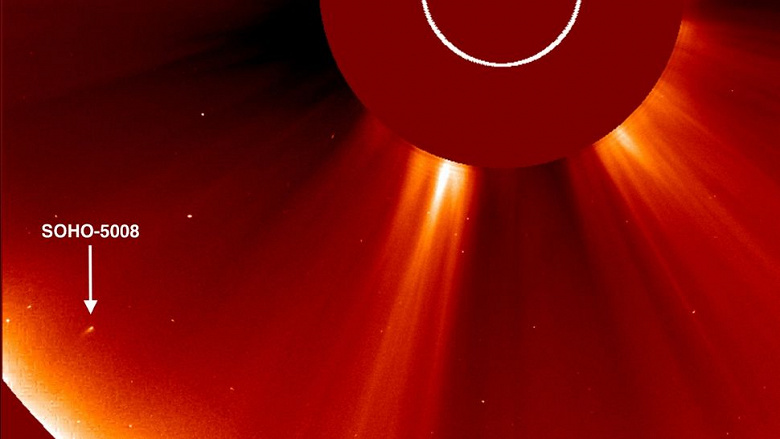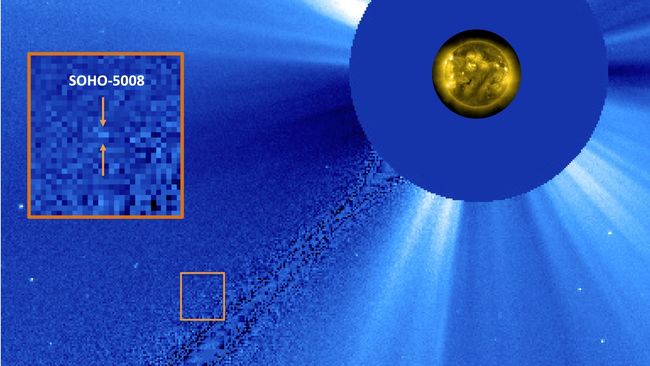Comets during a solar eclipse are a one-time and rare sight
April 8, just a few hours before a total solar eclipse, an amateur astronomer discovered a small comet near our star. The object was photographed intact and then disintegrated later that day.
Tiny «sunny» the comet was discovered, photographed and destroyed during the recent total solar eclipse — all within 24 hours. Experts say this is one of the rare times the comet has been seen during a solar eclipse.
April 8, millions of people across North America watched the Moon temporarily block our Sun, its dark shadow racing between Mexico and Canada at more than 2,400 km/h. The event, which was also visible from space, was special due to the length of the period when the solar disk was completely hidden, — it lasted almost 4 minutes and 28 seconds.
A few hours before the eclipse, Worachat Boonplod, an amateur astronomer from Thailand, discovered a small comet near the Sun. The comet's destruction was also recorded by NASA's Solar and Heliospheric Observatory (SOHO) coronagraph. The comet was named SOHO-5008.
As the moon's shadow passed over New Hampshire, amateur astronomer Lin Zixuan photographed the comet, Spaceweather.com reports. In the image, the comet is visible as a tiny spot in the dark sky.

«Ground-based observations of comets sliding across the disk of the sun are extremely rare; they can only be captured during eclipses», — wrote Carl Battams, an astrophysicist at the US Naval Research Laboratory in Washington and director of NASA's Solar Comets Project. in X. But the comet could not be observed with the naked eye, he added.
Later that day, astronomers lost sight of SOHO-5008 as it likely disintegrated after getting too close to the Sun. This eventually happens to most other near-solar comets. Due to limited data collected by researchers before the comet's destruction, it is unclear how large the comet was or how close it came to the Sun.
Comets, which come within about 8 million kilometers of the Sun, or about 10 times closer to the Sun than Mercury, were first discovered in the late 19th century. Most of them belong to the Kreutz group, which are believed to be fragments of a giant comet that broke up about 2000 years ago.

This is not the first time a near-solar comet has been observed during an eclipse. During the December 14 solar eclipse over Argentina and Chile in 2020, Comet C/2020 X3 (SOHO-3524), also discovered by Boonplod, was imaged. According to NASA, this comet, which was observed for a longer period, was about 15 meters wide and was moving at a speed of 725,000 km/h.
SOHO-5008 wasn't the only comet that photographers were hunting for during the eclipse. Comet 12P/Pons-Brooks, known as the Devil's Comet, was also expected to be visible, perhaps even to the naked eye. However, discovering this comet turned out to be much more difficult than expected.

